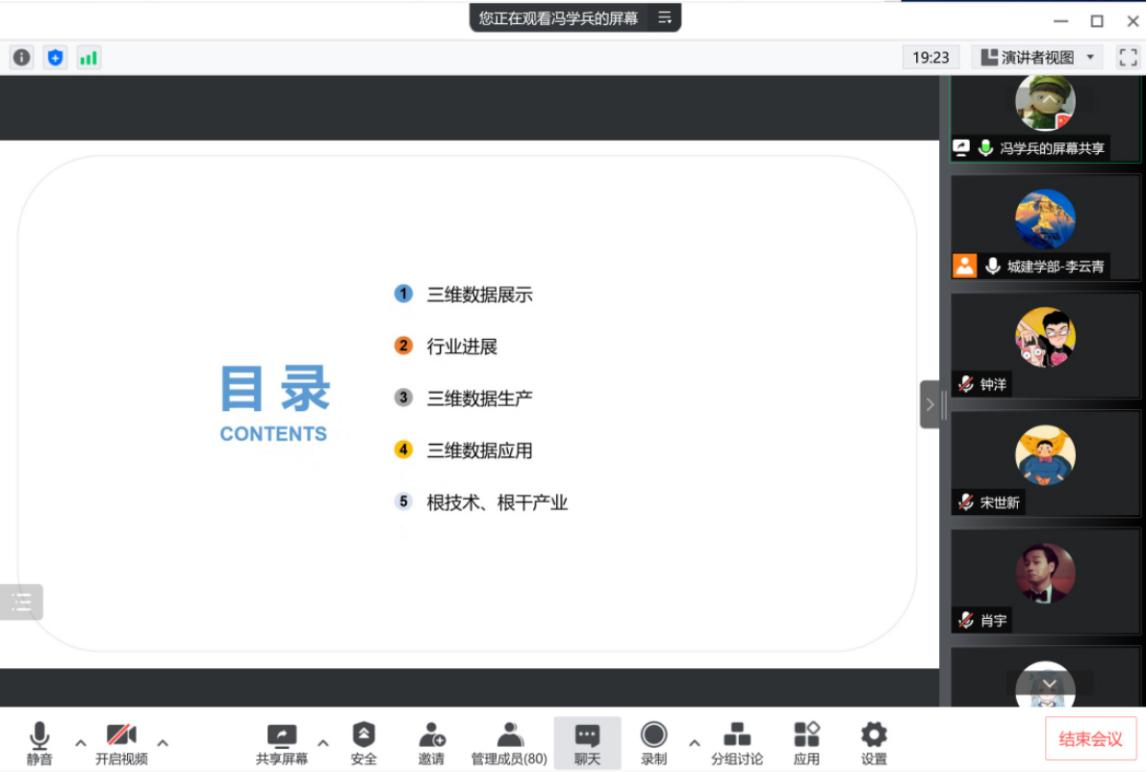From May 25th to 28th, the School of Urban Construction invited experts from architecture-related industries to give three special lectures, which started the lecture journey for junior year students from Architecture, Landscape Architecture and Urban and Rural Planning majors in BCU.

On May 25th, Jeffray L.Soule, the professor for Urban Planning postgraduate course in Georgetown University, USA was invited to deliver an online lecture on “Site Construction: Practice for Sustainable Development of Small Towns and Rural Planning” for the students who took the course “Urban Design Studio”. Professor Su used vivid cases to explain the importance of sustainable development in China's small town planning, and shared the advantages and lessons from America’s urban and rural planning development experience in-depth. He also compared it with the actual situation in China, looking forward to providing reference and inspiration for urban and rural planning in China, especially the small town planning.

On May 28th, Liu Miao, Deputy Chief Architect of Beijing Institute of Architectural Design, Executive Director of Future Research Institute, Director of No.7 Architectural Design Institute, was invited to deliver a lecture on “Historical Blocks Protection Planning and Renewal Design Studio” to students who took the course “Constraint and Intervention-Defining Breakthroughs in Industrial Heritage Transformation”. By enumerating the cases of international heritage protection and renewal, he introduced the industrial heritage protection and renewal mode. Taking Jinyu (Xingfa Cement Factory) in the north area of Huairou Science City as an example, he explained in-depth the design process of transforming sand storage and crushing plant into a science teaching building, which well presented the Chinese practice of industrial heritage protection.
On May 28th, Feng Xuebing, Technical Director of Beijing Digital Cloud Technology Co., LTD., was invited to give a lecture on “3D Modeling and Application” for the students who took the course “Spatial Data Acquisition and Modeling Studio”. He demonstrated urban 3D modeling based on the laser radar data, tilt photography data, etc., and summarized the industrial development of the current 3D modeling and application based on the actual projects he participated in. This helped students understand the connotation and requirements of new basic surveying and mapping, real 3D China, big data platform construction of time and space, as well as 3D modeling application in the city brain, digital twinning, CIM, and smart city. He also introduced the technical process and standards of 3D data production, shared the new application direction of 3D data, and encouraged students to make their own contributions to the development of the industry in the future
.

Over the years, the School of Urban Construction, BCU has implemented the educational concept of integration and overlap, long-span dialogue, actively explored, and gradually formed a talent training mode featuring “engineering scaffolding ability”. The Studio courses are in-campus practices for this talent training mode, for students in architecture-related majors (including Architecture, Urban and Rural Planning, and Landscape Architecture). The Studio courses include “Urban Design Studio”, “Historical Blocks Protection Planning and Renewal Design Studio”, and “Spatial Data Acquisition and Modeling Studio”. There are expansion courses offered to junior year students majoring in architecture-related majors in the spring semester. Based on the school-enterprise cooperation platform, the topics will be selected and designed, and the courses will be carried out in Studio mode. Students set up teams across majors, and under the guidance of teachers inside and outside BCU, they will simulate the real work scenarios. Within 3 weeks, they will need to complete the course tasks. The Studio courses were launched in 2021, and in this second year, students from Geographic Information Science major were additionally enrolled into “Spatial Data Acquisition and Modeling Studio”, aiming to contribute more professional strength to preliminary data processing and spatial analysis and further deepen the collaboration and integration between majors.
